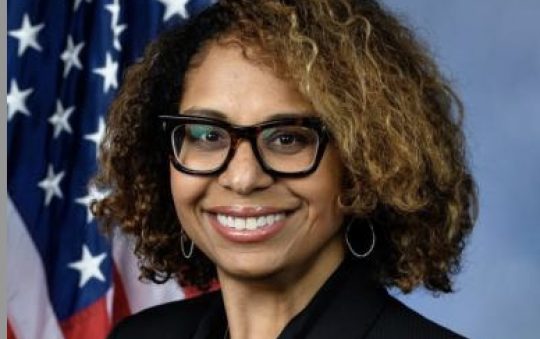
On Thursday, June 29, a six-member majority of the Supreme Court voted to curtail race-based admissions programs at Harvard University and the University of North Carolina (UNC), upending the landmark 1978 case Regents of the University ofCalifornia v. Bakke.
The justices ruled that race-based admissions policies at these two universities violated the 14th Amendment’s guarantee of equal protection. This ruling overturns more than 40 years of legal precedent and will change how the nation’s universities select their students. Many universities have said that “without considering race as a factor in admissions, their student bodies will contain more Whites and Asian Americans, and fewer Blacks and Hispanics.”
The Court split along ideological lines with a 6-3 decision in the UNC case and a 6-2 decision in the Harvard case. Justice Ketanji Brown Jackson recused herself from the Harvard case as she has served as a board member for the institution.

President Biden expressed his disappointment in the ruling, telling reporters:
“Discrimination still exists in America, and today’s decision does not change that,” Biden said. He defended affirmative action as a “necessary tool that enables colleges to admit a more diverse group of students who meet their admissions criteria.”
This is the second time that the Supreme Court has abandoned decades-old landmark rulings. In 2022, the justices ended the guarantee of abortion rights after 50 years in Roe v. Wade.

Justice Sonia Sotomayor, the first Latina justice to serve on the Court, led the dissent, which she read from the bench:
“Today, this Court stands in the way and rolls back decades of precedent and momentous progress,” Sotomayor said.
“It holds that race can no longer be used in a limited way in college admissions to achieve such critical benefits. In so holding, the Court cements a superficial rule of colorblindness as a constitutional principle in an endemically segregated society where race has always mattered and continues to matter,” she said.
“The devasting impact of this decision cannot be overstated,” said Sotomayor, joined by Justices Elena Kagan and Ketanji Brown Jackson, the first Black female to sit on the High Court in the dissent.

It was no surprise that Justice Clarence Thomas concurred with the majority but, in a shaking my head moment, singled out Justice Ketanji Brown Jackson, writing, “In her view, almost all of life’s outcomes may be unhesitatingly ascribed to race.”
Justice Jackson responded to what she called “Thomas’s prolonged attack,” writing, “With let-them-eat-cake obliviousness, today, the majority pulls the ripcord and announces colorblindness for all by legal fiat. But deeming race irrelevant in law does not make it so in life.”
“Our country has never been colorblind,” Justice Jackson wrote.
Chief Justice John G. Roberts, Jr., wrote the opinion for the majority. Justices Thomas, Samuel A. Alito Jr., Neil M. Gorsuch, Brett M Kavanaugh, and Amy Coney Barrett formed the majority. It is worth mentioning that three majority members are appointees of former president Donald Trump.
There was immediate outrage from many facets of the Black community. President Barack Obama, the nation’s first and only Black president, and First Lady Michelle Obama spoke personally about the ruling.
“Affirmative action was never a complete answer in the drive towards a more just society. But generations of students who had been systematically excluded from most of America’s key institutions-it gave us a chance to show we more than deserved a seat at the table. In the wake of the Supreme Court’s recent decision, it’s time to redouble our efforts,” President Obama said.
In a very personal post, First Lady Michelle Obama wrote in part:
“So today, my heart breaks for any young person out there wondering what their future holds – and what kinds of chances will be open to them. And while I know the strength and grit that lies inside kids who have always had to sweat a little more to climb the same ladders, I hope and pray that the rest of us are willing to sweat a little, too. Today is a reminder that we’ve got to do the work not just to enact policies that reflect our values of equity and fairness but to truly make those values real in all of our schools, workplaces, and neighborhoods.”
The Congressional Black Caucus derided the Court’s decision by calling the Court’s legitimacy into question with a ruling “upending the use of affirmative action in college admissions.” The Caucus called the decision “radical” and argued that the decision hurts the chances of minority students getting opportunities to advance themselves.
In 1996, California voters approved that the University of California and California State University systems could not use race as an admissions factor. In 2020, Californians rejected a measure that would have overturned the ban. An EdSource analysis of CSU and UC student enrollment data from 1996 through 2018 revealed that voter rejection of affirmative action hurt the enrollment of Black, Latino, and Native American students in California’s public universities. Ironically, eight other states have followed California in banning admissions policies, including Michigan, Florida, and Washington.
Rev. Al Sharpton of the Social Action Network said it best:
“I think that this is tantamount to sticking a dagger in our back because what they have said now is that it is unconstitutional even to consider race,” Sharpton said. “It was against the law for us to read and write until 160 years ago. We were enslaved for 246 years. The laws were against us, and now the law has turned on us.”
.







